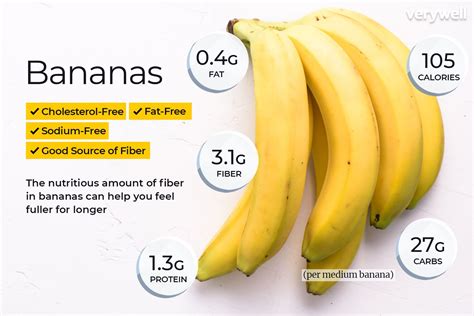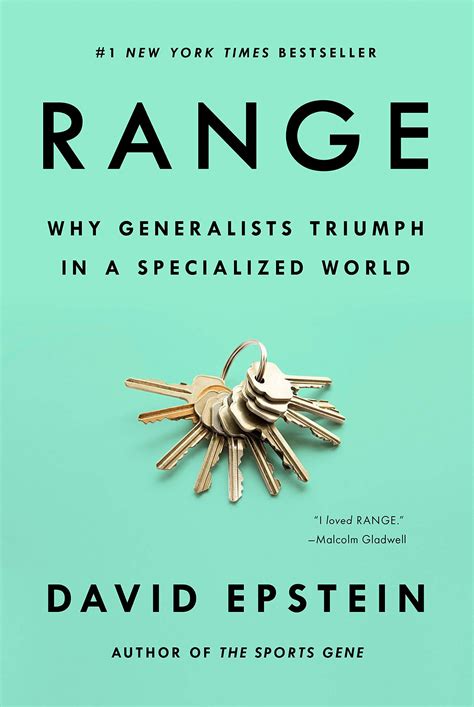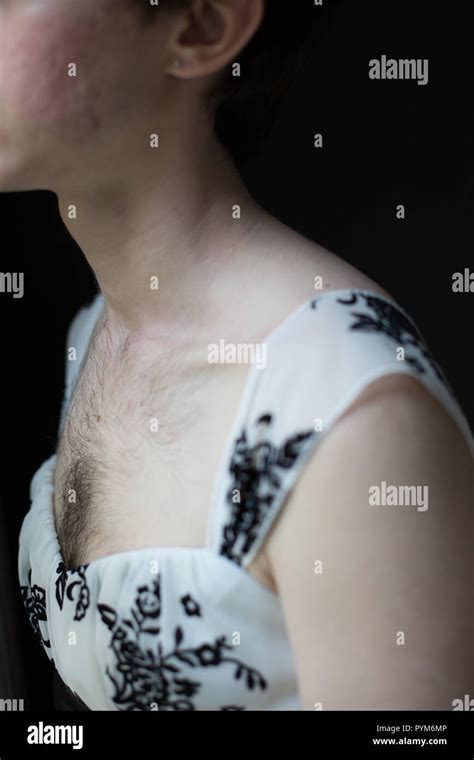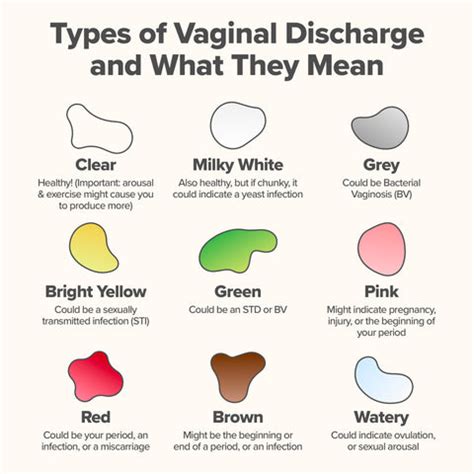What Is Important In A Cover Letter
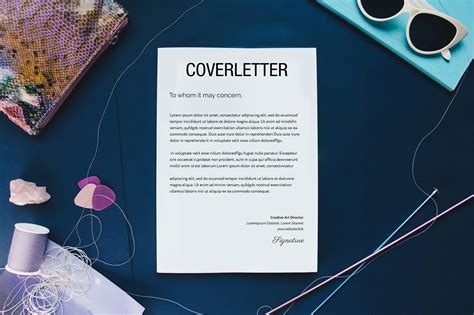
When applying for a job, a cover letter is a crucial component of your application, often making the difference between getting noticed by a potential employer and being overlooked. It serves as a powerful tool to introduce yourself, showcase your unique qualifications, and demonstrate your suitability for the role. In today's competitive job market, a well-crafted cover letter can set you apart from other candidates and increase your chances of landing an interview.
A cover letter is an opportunity to tell your professional story, highlighting your skills, experiences, and motivations. It allows you to connect your background to the specific requirements of the position, showing that you are a thoughtful and enthusiastic candidate. By providing context and insight into your career journey, you can create a compelling narrative that resonates with hiring managers and leaves a lasting impression.
The Power of a Personalized Cover Letter
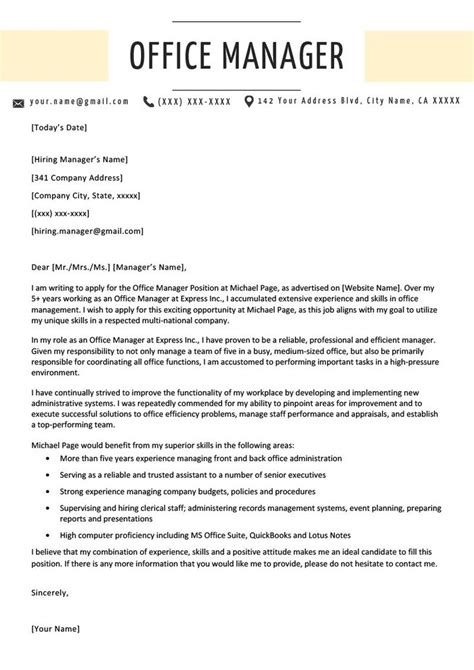
In an era where employers receive countless applications, a personalized cover letter can make you stand out. It demonstrates that you have taken the time to research the company, understand its mission, and tailor your application accordingly. This level of customization shows your genuine interest in the role and the organization, setting you apart from candidates who submit generic, one-size-fits-all letters.
When writing a cover letter, it's essential to showcase your unique value proposition. This involves highlighting your relevant skills, experiences, and accomplishments that align with the job description. By providing specific examples and demonstrating how your background fits the role's requirements, you can make a strong case for why you are the ideal candidate.
Key Elements of an Effective Cover Letter
- Introduction: Begin with a compelling opening that grabs the reader’s attention. Introduce yourself and briefly explain why you are interested in the position and the company. Mention any mutual connections or shared interests to establish a personal connection.
- Body Paragraphs: Dedicate each paragraph to a specific skill or qualification. Discuss how your experiences have prepared you for the role, providing concrete examples and achievements. Use clear and concise language to highlight your strengths and demonstrate your expertise.
- Company Research: Showcase your understanding of the company’s mission, values, and recent achievements. Explain how your skills and goals align with the organization’s objectives. This demonstrates your interest and shows that you are a potential asset to the team.
- Call to Action: Conclude your cover letter with a strong call to action. Express your enthusiasm for the opportunity and your eagerness to contribute to the company’s success. Encourage the hiring manager to reach out and schedule an interview, emphasizing your availability and willingness to discuss the role further.
In addition to these elements, it's crucial to ensure your cover letter is well-formatted, error-free, and easy to read. Use a professional font and a clear structure to make it visually appealing. Avoid overly long paragraphs and maintain a concise writing style. Remember, the goal is to provide a snapshot of your professional journey and make a compelling case for why you are the best fit for the position.
| Cover Letter Length | Recommended Word Count |
|---|---|
| Standard Cover Letter | 300-350 words |
| Experienced Professionals | 350-400 words |
| Entry-Level Applicants | 250-300 words |
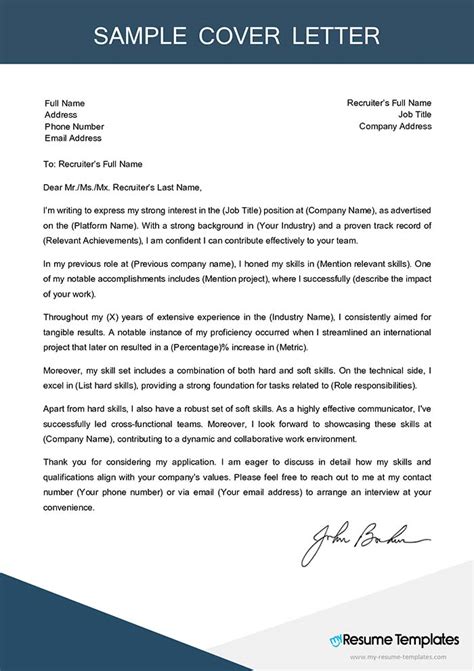
Cover Letter Dos and Don’ts
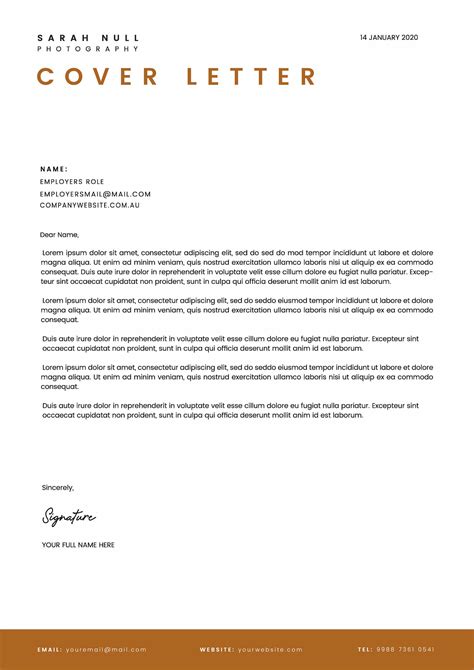
- Do: Keep your cover letter concise and focused. Avoid unnecessary details or tangents.
- Don’t: Repeat your entire resume in the cover letter. Use it to highlight unique achievements and experiences.
- Do: Use a professional and polite tone throughout your letter.
- Don’t: Make any false claims or exaggerate your skills or experiences.
- Do: Proofread your cover letter multiple times to ensure it is error-free.
- Don’t: Neglect to customize your letter for each job application.
The Impact of a Well-Written Cover Letter
A well-crafted cover letter can have a significant impact on your job search. It allows you to showcase your passion, enthusiasm, and unique qualifications, making you a memorable candidate. By demonstrating your understanding of the company and your ability to contribute to its success, you increase your chances of being invited for an interview. A cover letter is your opportunity to tell your professional story and leave a lasting impression, setting the stage for a successful career journey.
Conclusion
In today’s competitive job market, a cover letter is a critical tool to showcase your unique value and make a strong first impression. By personalizing your letter, highlighting your relevant skills, and demonstrating your passion and enthusiasm, you can set yourself apart from other candidates. Remember, a well-written cover letter is not just a formality; it’s an opportunity to tell your professional story and convince employers that you are the ideal fit for their organization.
How long should a cover letter be?
+A cover letter should typically be around 300 to 350 words for most job applications. However, it’s important to adapt the length based on your experience and the specific requirements of the role. Entry-level applicants can keep their cover letters slightly shorter, around 250-300 words, while experienced professionals may need slightly more space, around 350-400 words, to showcase their extensive backgrounds.
What should I include in my cover letter introduction?
+Begin your cover letter introduction by stating your interest in the position and the company. Mention any specific aspects of the job or the organization that excite you. You can also include any mutual connections or shared interests to create a personal connection. Keep it concise and engaging to grab the reader’s attention.
How can I make my cover letter stand out?
+To make your cover letter stand out, focus on personalization and specificity. Research the company and its mission, and tailor your letter to show how your skills and experiences align with their goals. Use concrete examples and achievements to demonstrate your value. A unique and well-crafted cover letter can set you apart from other candidates and increase your chances of being noticed.
